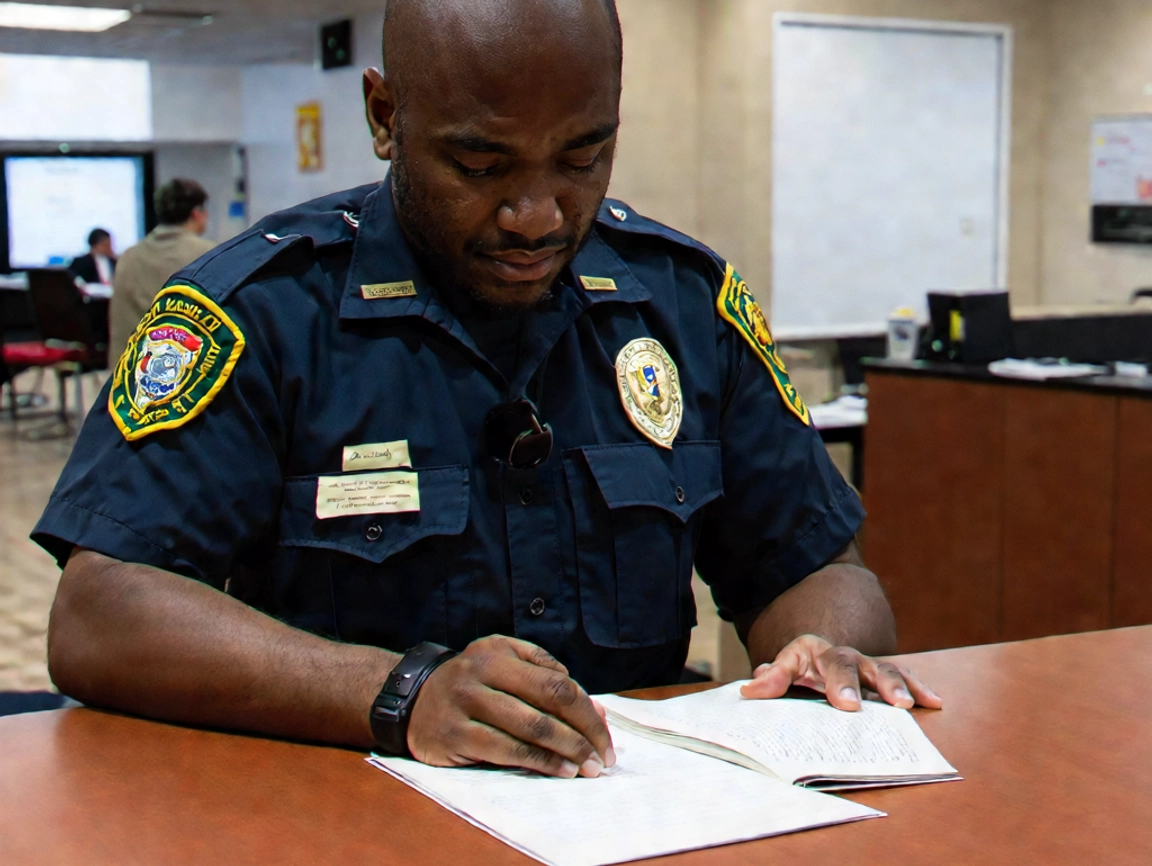
-
[email protected]
E-mail Us
-
7087 West Blvd, #8, Youngstown, Ohio 44512
Open by Appointment Only
(888) 341-6960
Contact our 24-hour customer care team
(888) 341-6960
Contact our 24-hour customer care team

01
Jan
Jan
The Unsecured City: Inadequate Security Guard Training in Youngstown, Ohio
Youngstown, Ohio, like many urban centers, relies on private security firms to supplement public safety efforts and protect its businesses and residents. However, a critical vulnerability undermines this crucial layer of security: the widespread inadequacy of security guard training. This deficiency, marked by insufficient preparation, inadequate skills, and a prioritization of profit over competence, creates a dangerous environment and poses a significant threat to public safety and community trust. The problem is not merely one of inconvenience; it represents a systemic failure with potentially devastating consequences.
The issue begins even before a guard begins their shift. Many Youngstown security companies prioritize rapid hiring over thorough vetting and comprehensive training. This often translates to a lack of background checks, insufficient screening for relevant experience, and a complete absence of rigorous training programs. Potential clients, therefore, must demand transparency. They should insist on seeing comprehensive training records, verifying that employees are properly registered with the Private Investigator Security Guard Services (PISGS), and, critically, demanding proof of liability insurance. The absence of insurance leaves property owners and businesses potentially liable for incidents that inadequately trained guards fail to prevent or properly report. This lack of accountability fosters a culture of complacency, where filling positions quickly outweighs the investment in properly trained personnel.
The consequences of this shortcut are readily apparent. Inadequately trained guards often struggle with fundamental tasks. They exhibit deficiencies in report writing, a crucial element of effective security, highlighting a broader lack of understanding of security protocols, de-escalation techniques, and observation skills. These inadequacies translate into a heightened risk of security breaches, inadequate emergency responses, and a general inability to effectively address potential threats. A guard unable to properly document an incident or de-escalate a potentially violent situation is not merely ineffective; they are a liability, potentially exacerbating dangerous situations.
The impact extends beyond individual incidents. The widespread lack of training undermines the entire industry’s credibility. Clients pay for a perceived sense of security, only to receive a service that offers minimal protection. This false sense of security is particularly dangerous, as it can lead to complacency and a decreased reliance on other security measures. The result is a city vulnerable to crime and incidents that could have been prevented with properly trained and equipped security personnel. This ultimately erodes public trust in both the private security industry and, by extension, the city’s commitment to public safety.
Addressing this critical issue requires a multi-pronged approach. Security guard companies must prioritize comprehensive training programs that equip guards with the necessary skills and knowledge. This includes rigorous instruction in report writing, de-escalation techniques, emergency response protocols, and keen observation skills. Furthermore, regulatory bodies, such as the PISGS, need to enforce stricter standards, ensuring that companies adhere to minimum training requirements and are held accountable for the competence of their employees. Increased oversight and penalties for non-compliance are crucial. Finally, clients must become more discerning consumers, demanding proof of training and insurance before contracting with security firms. Only through such a combination of industry reform, regulatory enforcement, and informed consumerism can Youngstown, and cities facing similar challenges, hope to break the cycle of inadequate security and its potentially devastating consequences. The safety and security of the community depend on it.
-
Tags
- 24-hour Protection Access Control akron Alarm Response armed guards background checks businesses Certified Security Commercial Security commitment community safety community trust competence complacency comprehensive training comprehensive training programs comprehensive training records Corporate Security credibility crime dangerous environment dangerous situations De-escalation techniques devastating consequences discerning consumers emergency responses event security Experienced Security false security Fire Watch fundamental tasks inadequacy inadequate security inadequate skills increased oversight Industrial Security industry reform ineffective informed consumerism insufficient preparation insufficient screening liability liability insurance Licensed Security minimal protection minimum training requirements Mobile Patrols multi-pronged approach necessary skills non-compliance observation skills ohio Ohio Security Alarms Ohio Security Cameras Ohio Security Contractors Ohio Security Experts Ohio Security Guards Ohio Security Installation Ohio Security Maintenance Ohio Security Management Ohio Security Monitoring Ohio Security Officers Ohio Security Patrols Ohio Security Personnel Ohio Security Planning Ohio Security Planningaccountability Ohio Security Services Ohio Security Solutions ohio security systems penalties perceived security potential threats preventable incidents Private Investigator Security Guard Services (PISGS) private security firms Professional Security profit public safety public safety threat public trust rapid hiring regulatory bodies regulatory enforcement Reliable Security report writing Residential Security residents rigorous training programs Risk Assessments Security Security Alarms security breaches Security Cameras Security Consulting Security Contractors Security Experts security guard services security guard training security guards Security Installation Security Maintenance Security Management Security Monitoring security officers Security Patrols Security Personnel Security Planning security protocols security services Security Services Akron Security services Ohio Security Services Warren security services youngstown Security Solutions Security Systems security training surveillance systemic failure thorough vetting trained personnel transparency Trusted Security Unarmed Guards urban centers VIP Protection vulnerability warren youngstown
Categories
Recent Posts
Popular Tags
airbnb security
armed event security
armed guards
armed mobile patrol
armed roving patrol
Armed School Security Guards
Armed School Security Officers
armed security
armed security for events
armed security guard
Armed security guards
armed security guards in youngstown ohio
armed security officers
armed security services
armed security training
armed security warren ohio
austintown ohio
best private security companies
Cheap private detectives
Cheap private investigators
cheating spouse
Cheating spouse detectives New Castle Pennsylvania
Cheating spouse investigations New Castle Pennsylvania
Cheating spouse investigators New Castle Pennsylvania
Cheating spouse New Castle PA
Cheating spouse New Castle Pennsylvania
daily security guard activity logs
event security guards
fingerprinting for security guards
hire private security for a day
Infidelity investigators New Castle Pennsylvania
ohio
onlyfans youngstown
Private Detective
Private detective agencies in Newcastle Ohio
Private detectives New Castle PA
Private investigation agencies in New Castle Pennsylvania
private investigator
Private Investigator New Castle PA
private investigator rates
private security
Security
security youngstown
security youngstown ohio
unarmed security





